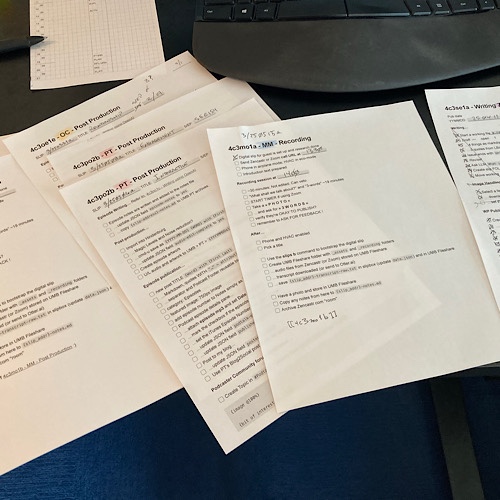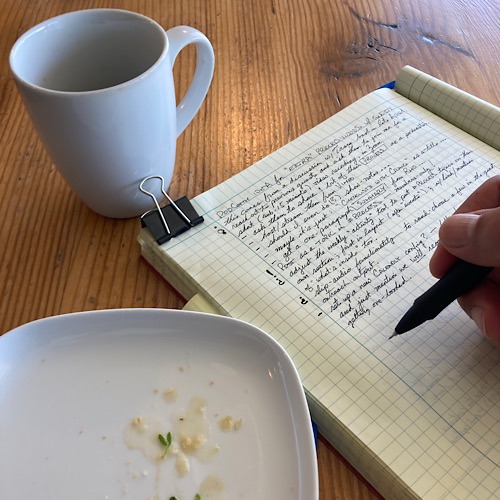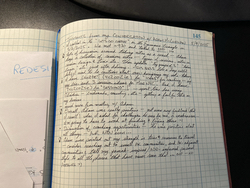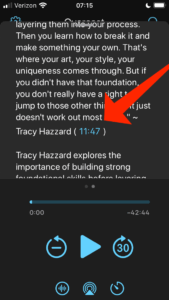How can older adults reclaim movement as a joyful, empowering part of life despite pervasive cultural narratives about aging?
Letting go of perfectionism opens the door to playfulness and self-compassion.
If I can be more compassionate toward myself, I can let go of this addiction to competence and just let myself try, and suck. So yeah, I have come to embrace the idea that if a thing is worth doing, it is worth doing badly and playfully.
~ David Wilson (48:45)
This conversation with David Wilson explores how movement intersects with aging, self-perception, and cultural narratives. David begins by addressing how deeply internalized ageist beliefs affect people’s willingness to move, take up space, and try new things. The discussion challenges the idea that aging necessitates physical decline, emphasizing instead that variety in movement and awareness of personal stories can lead to growth and transformation at any age. David also critiques societal pressures that promote fear-based motivation, and he encourages a shift toward framing movement as a present-moment gift.
The conversation moves through practical barriers and misconceptions that keep people inactive, such as rigid goals, perfectionism, and the belief that certain types of exercise are required. It emphasizes meeting oneself where one is, using personal values rather than fixed goals as guides. The importance of self-compassion, playfulness, and the willingness to “do things badly” is highlighted as a more sustainable path toward movement. There’s also a critique of mainstream fitness messaging, which often excludes older populations by failing to address their actual lived experiences.
Takeaways
Internalized ageism — Movement hesitancy is often rooted in lifelong exposure to ageist narratives absorbed from a very young age.
Misconceptions about aging — Many decline-related assumptions are not due to age itself but to reduced movement and lifestyle limitations.
Curiosity over goals — Letting go of rigid, timeline-based goals makes space for exploration and deeper engagement with movement.
Compassionate self-awareness — Bringing compassion into one’s personal practice enables growth without harsh self-judgment.
Playfulness as practice — Play offers a route to joy and learning, especially valuable when countering addiction to competence.
Movement generalism — A broad, varied movement practice supports better adaptability and long-term capability.
Fear-based fitness culture — Much mainstream messaging about aging and exercise motivates through fear instead of empowerment.
Efficiency of the body — The body conserves resources by shedding unused capabilities, so maintaining movement variety is crucial.
Accessible movement — Movement does not require equipment, special clothing, or gym memberships—it can be integrated into daily life.
Time as a barrier — A perceived lack of time is the most common excuse for not moving, yet even minutes of activity show measurable benefits.
Specificity of training — Effective physical preparation must match the demands of real environments rather than generic or repetitive exercise.
Gratitude for the body — Pausing to appreciate the body’s enduring support helps reframe limitations and fosters a more engaged relationship with movement.
Imagination of aging — How one envisions growing older strongly influences present decisions about health and movement.
Practice as identity — How we treat ourselves in movement mirrors how we show up in the world and in relationships.
Resources
OldsCoolMoves website — David Wilson’s web site offering online courses and information.
Five Minute Movement — A series of short guided sequences emphasizing movement variety.
Ageism Unmasked — Tracy Gendron’s book exploring the deep roots and effects of ageism.
This Chair Rocks — Ashton Applewhite’s book offering another perspective on ageism and cultural narratives about aging.
Road Scholar — A nonprofit focused on travel and education for older adults.
(Written with help from Chat-GPT.)
ɕ



